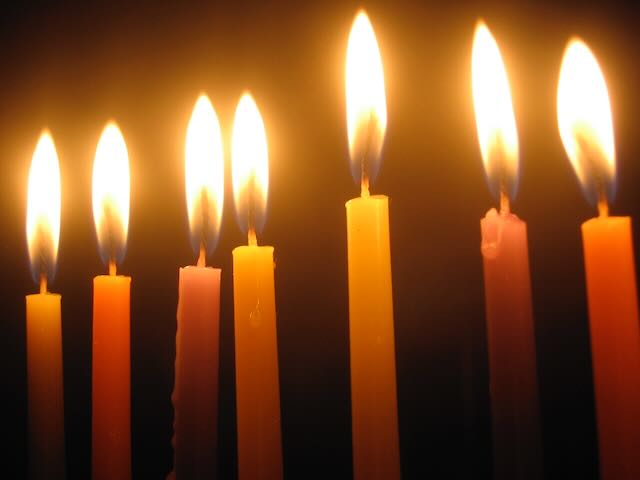The story of Hanukkah is the first story of people fighting for the freedom to worship God, free from government intrusion or forced cultural change. In the second century before Christ, the Jews and their Homeland were occupied by the Seleucid, the Greek Kingdom based in Syria. The Greeks mistreated the poor across the land, promoted licentiousness and demanded the Jews abandon their faith in God. Teaching the Torah was banned, and pagan altars were placed in the sacred Temple in Jerusalem. It was as if the God of Israel had retreated from the Jewish People.
This came to a head when Antiochus Epiphanes, a name he gave himself literally meaning “Visible God” (fittingly only a few letters from the Greek “Epimanes”, meaning “Mad Man”) demanded the Jews worship he and Zeus as their ultimate gods. As a symbolic insult he had a pig sacrificed in the Temple in Jerusalem. Antiochus had a great deal of earthly power. He was head of a prosperous, technologically advanced, wealthy and organized empire. Many Jewish peasants decided it was better to suffer through it than take up arms.
That was until Matityahu, a simple elderly priest in the village of Modi’in was ordered by a Greek soldier to sacrifice an animal for Zeus in the town center. He refused, standing his ground, “I, my sons and my brothers are determined to remain loyal to the covenant that our God made with our ancestors!”
He and his sons fled to the hills where their obedience to God’s Word won them many followers and victories. In one battle Judah Macabee, son of Matityahu, and his zealots defeated forty thousand Greek soldiers.
In 165 BC the Macabees liberated the city of Jerusalem and purified the Temple of pagan icons and symbols. A new altar was made, as well as holy vessels. The Torah commanded that the menorah stay lit, a symbol of God’s ever lasting love and the Jews’ covenant with Him. It was critical to the purification of the Temple and the restoration of righteousness in the Land that the people see the flame burn.
They only had enough oil for one day. But it is not by human might or power that Righteousness could be restored, God stepped in with a miracle and the flame stayed lit, burning brightly for 8 days until new kosher oil could be produced.
To remember that the light of God is always present, even in the darkest hours in Exile, the Jews have commemorated this miracle. On the first of the eight nights of Hanukkah a special candle is lit, the Shamash, or “Servant” candle. This candle is placed on the highest, middle portion of the menorah. Each night a new candle is lit with the Shamash candle and by the final night all eight candles and also the Shamash candles are lit. This is symbolic of how we must be in our lives. The light which God gives us we must share with others, we can become a candle that spreads the light of God over the holidays, representing God’s ever lasting Light.
Hanukkah reminds us that God desires that His light shine through His people into a dark world, that we not hide our light under a bushel (Mat 5:15). In human history actions count. In the story of Hanukkah, God responded to human effort. When we decide to act in history and with each other, how does God respond? He outnumbered Macabees chose to act and God provided the miracle. So to we also need to be people of action so God’s light will shine through.

